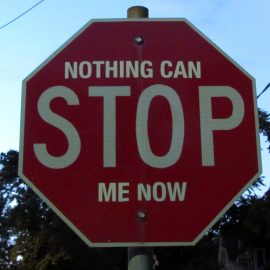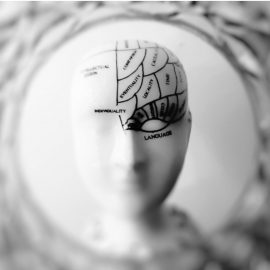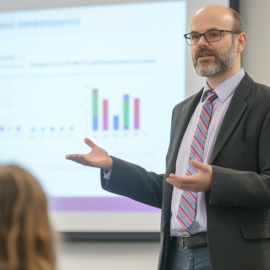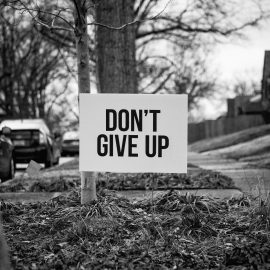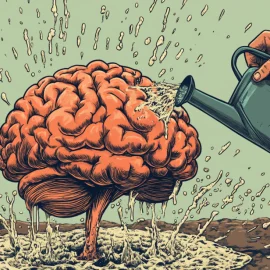

This article is an excerpt from the Shortform book guide to "Poor Charlie's Almanack" by Charles T. Munger. Shortform has the world's best summaries and analyses of books you should be reading.
Like this article? Sign up for a free trial here .
Why is objective decision-making important? How do you make objective decisions?
Objective decision-making is important because it helps you focus on verifiable facts and embrace contrary thinking that may be more correct than the prevailing wisdom. You can always stay objective by recognizing that it’s easy to delude yourself, readily entertaining other opinions, and being willing to destroy your favorite ideas.
Read on to discover the 3 steps to objective decision-making.
On Rationality and Decision-Making
When asked to describe himself in one word, Charlie Munger chose “rational.” He knows he’s subject to the same biases affecting all other humans, and he’s trained himself to recognize when the biases are active and how to limit their damage.
The Secrets to Objective Decision-Making
If you want to make better decisions, you need to seek truth—what is really happening in the world, not what you want to believe is happening. Recognizing the truth is often painful—it may go against your prior beliefs or desires, but recognizing reality is better than deluding yourself.
Here are the three steps to objective decision-making:
First, recognize that it’s very easy to delude yourself.
- “What a man wishes, he will believe.”—Demosthenes
- “Never fool yourself, and remember that you are the easiest person to fool.”—Richard Feynman
- “How many legs does a dog have if you call the tail a leg? Four. Calling a tail a leg doesn’t make it a leg.”—Abraham Lincoln
- “Apply logic to help avoid fooling yourself. Charlie will not accept anything I say just because I say it, although most of the world will.”—Warren Buffett
- “A new scientific truth does not triumph by convincing its opponents and making them see the light, but rather because its opponents eventually die, and a new generation grows up that is familiar with it.”—Max Planck
Second, you should readily entertain other opinions. Objective decision-making requires that you deliberately consider arguments of the other side. In fact, try to state the other side’s opinions better than they can themselves.
- Resist the tendency to accept only information that confirms your prior beliefs and to reject information that contradicts it (also known as confirmation bias).
- If you don’t take up these practices, you’ll find that you automatically reject ideas you disagree with. This is a dangerous habit you need to train yourself out of.
- Example: Munger cites “[CBS head] Paley was a god. But he didn’t like to hear what he didn’t like to hear, and people soon learned that. So they told Paley only what he liked to hear. Therefore, he was soon living in a little cocoon of unreality and everything else was corrupt.”
Third, after considering other viewpoints, you should readily change your mind.
- Be willing to destroy your favorite ideas. Munger says that any year he doesn’t destroy one of his beloved ideas is a wasted year.
- “Faced with the choice of changing one’s mind and between proving there is no need to do so, almost everyone gets busy on the proof.”—John Kenneth Galbraith
- “Both Warren and I are very good at changing our prior conclusions. We work at developing that facility because, without it, disaster often comes.”
Be aware that strong psychological biases are in place that prevent you from mastering objective decision-making. The next chapter in the guide will cover his 25 psychological biases. Here are a few notable ones that distort the truth:
- Denial: Be willing to admit that you’re wrong. Denying the truth doesn’t make it any less real.
- Consistency bias: Don’t entrench in your beliefs simply because you’ve held them for a long time. This is related to sunk cost fallacy—don’t throw good money after bad simply because you’re unwilling to change your mind.
- Incentive bias: If you have an incentive to believe a certain way, then you’re likely to be biased toward that belief.
(Shortform note: Another famed investor Ray Dalio is also well known for his philosophy on objective decision-making and aggressively seeking the truth. Read our guide to his book Principles.)

———End of Preview———
Like what you just read? Read the rest of the world's best book summary and analysis of Charles T. Munger's "Poor Charlie's Almanack" at Shortform .
Here's what you'll find in our full Poor Charlie's Almanack summary :
- A collection of Charlie Munger’s best advice given over 30 years
- Why you need to know what you’re good at and what you’re bad at to make decisions
- Descriptions of the 25 psychological biases that distort how you see the world

